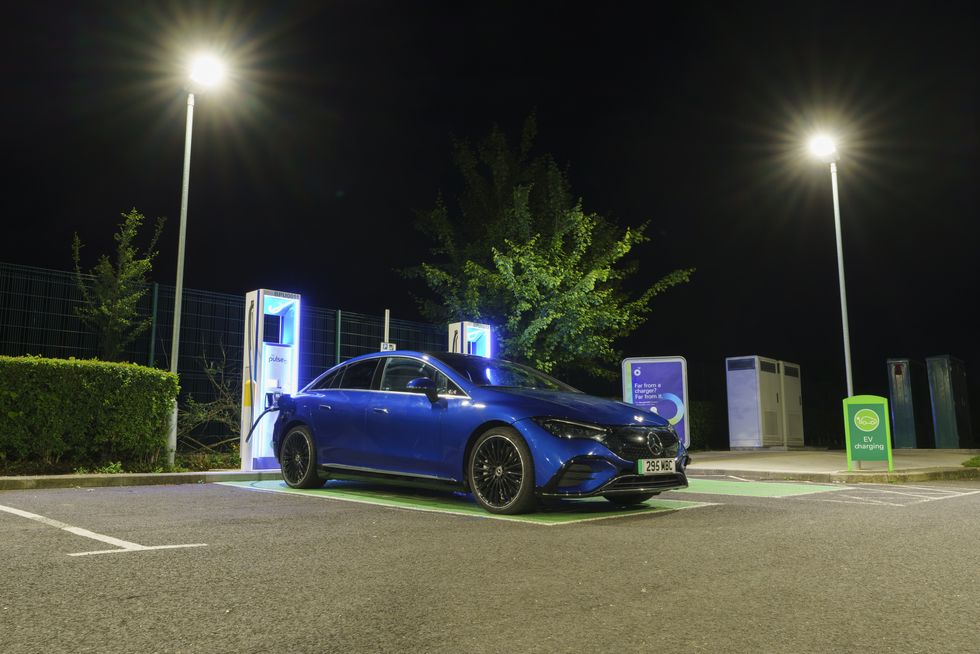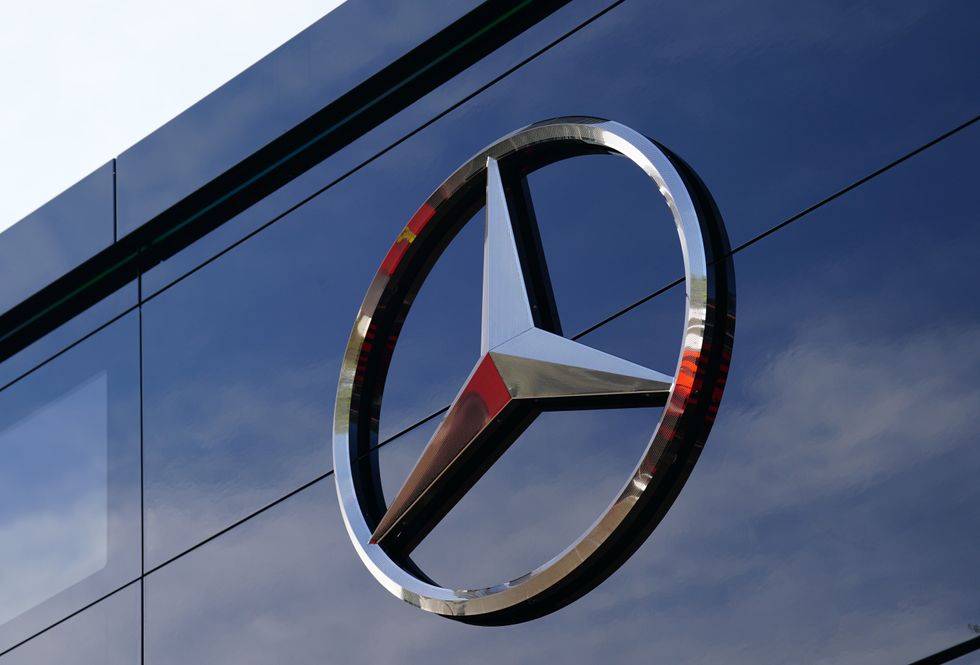The Mercedes-Benz EQE is one of the brand's best-selling EVs
MERCEDES-BENZ
Don't Miss
Most Read
Trending on GB News
Mercedes-Benz has reaffirmed its commitment to continue making petrol cars stating that it would not make any “economic sense” in putting all its energy into electric cars right now.
Speaking to Autocar, Källenius revealed that the luxury carmaker is prepared to invest in separate architectures for combustion and electric models as long as there is demand for both.
This strategy aims to offer customers more choice in terms of equipment, space, technology, and performance.
The decision reflects Mercedes' recognition that the market is not yet ready for a complete shift to electric vehicles.
Do you have a story you'd like to share? Get in touch by emailingmotoring@gbnews.uk
 Mercedes-Benz already sells a number of EVs including the EQE 350+ MERCEDES-BENZ
Mercedes-Benz already sells a number of EVs including the EQE 350+ MERCEDES-BENZKällenius emphasised the importance of catering to customer preferences, he said: "The customer comes first in this equation, and he or she is the true winner here. It's going to be the best of times for Mercedes customers in the next 10 years."
The next-generation S-Class, due to hit the market in late 2028, exemplifies Mercedes' dual-platform approach.
Källenius explained that converting an ICE model to an EV or vice versa would compromise performance and interior space.
He explained: "If you don't believe that the market is 100 per cent electric at that point, you have to have the choice for both." The strategy allows Mercedes to maintain its reputation for excellence in both electric and combustion vehicles.
While acknowledging the additional investment burden, Källenius said the company is working to keep costs manageable.
The plan involves maximising commonality between platforms in areas unrelated to powertrain and electronic architecture. The approach aims to deliver the best possible products to customers, regardless of their powertrain preference.
Källenius revealed that Mercedes has already begun converging its EV and ICE model lines, with the electric G-Class being named G580 rather than EQG.
This shift will continue as the EQ sub-brand is phased out. The CEO admitted surprise at the slow uptake of EVs, with current sales falling short of projections made five years ago.
Despite this, Mercedes remains committed to its EV strategy while also investing in new generations of combustion engines to meet Euro 7 emissions regulations.
Källenius noted that this dual approach puts Mercedes "in a very strong position and perhaps one of the strongest positions of the established manufacturers" to adapt to market changes.
The company's flexibility allows it to respond effectively to evolving customer preferences and regulatory requirements.
Mercedes' commitment to both petrol and electric vehicles is driven by market realities and economic considerations.
LATEST DEVELOPMENTS:

Mercedes Benz said it does not make 'economic sense' to switch to only electric
PAKällenius explained: "If we now think that by 2030 the market is not going to be absolutely dominant electric, it would not make any economic sense to walk away from a large part of the market."
He emphasised that if the market remains split between ICE and EV vehicles, Mercedes cannot afford to abandon half of its business. This pragmatic approach reflects the company's adaptability to changing market conditions.
By extending its ICE strategy beyond initial plans, Mercedes aims to maintain its competitive edge and cater to diverse customer needs. The luxury carmaker's flexible strategy positions it to thrive in an evolving automotive landscape, ensuring it can meet customer demands regardless of powertrain preferences.








